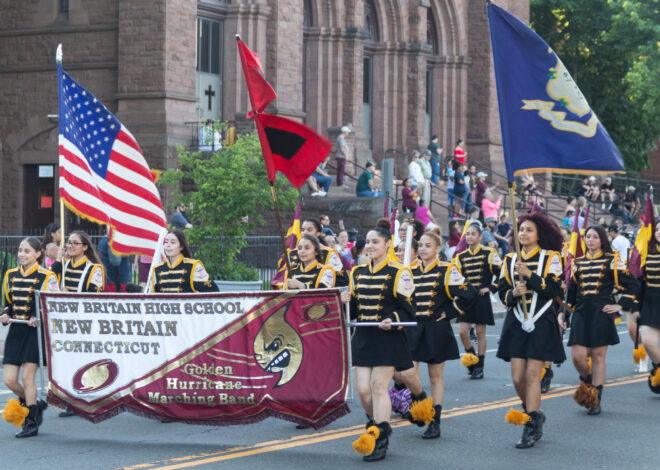Universal Voting Will Get A Hearing At General Assembly’s GAE Committee
by John McNamara
Courant Columnist Kevin Rennie has skewered the co-sponsors of a bill that would “institute mandatory voting” to “incentivise civic engagement” not once but twice this month.
Raising Rennie’s ire is legislation that would require voters to cast a ballot or provide a valid reason for not voting subject to a fine if a citizen does not comply. The General Administration and Elections Committee (GAE) voted 13 to 6 to hold a subject matter public hearing but has not voted to draft legislation for formal consideration.
Rennie’s acerbic takedowns of the five lawmakers supporting “vote police” are an understandable reaction to a law that would impose a penalty of any sort on registered voters for not voting. His sentiments will find lots of company among many citizens be they left, right or center as an infringement on constitutional rights.

“The basic elements of American democracy elude them,” wrote Rennie of the legislators. “Voters have as much right to decline to participate in an election as they do to cast a ballot. It is one of freedom’s glories.” Rennie believes that the intent of the bill to increase participation will have the opposite effect, further decreasing turnouts that in Connecticut municipal elections in 2021 dropped to a dismal 32%. In New Britain municipal voting reached a nadir of 28% despite record high spending in the mayoral race.
An impetus for the bill that proponents refer to as “universal voting” is a book by former Secretary of the State and Common Cause leader Miles Rapoport and Washington Post Columnist E.J. Dionne: “100% Democracy: The Case For Universal Voting” published in 2022. The book and the universal voting organization is pushing the idea of ‘mandatory” voting based mainly on Australia’s 100+ year practice of compulsory voting that produces very high turnouts.
Voters Down Under are liable for a fine ($20) akin to a parking ticket if they ignore filing a form excusing themselves.. It should be noted that elections there are celebratory community holidays held on Saturdays. In their book the Liberal-leaning Rapoport and Dionne say the move to Australia’s universal voting early in the 20th century stemmed from the conservative party worried that organized Labor would outpoll their party members without making it compulsory.
An impetus for the bill that proponents refer to as “universal voting” is a book by former Secretary of the State and Common Cause leader Miles Rapoport and Washington Post Columnist E.J. Dionne: “100% Democracy: The Case For Universal Voting” published in 2022.
The authors point out the practice is in place in other democracies around the world. Saying voting should be equivalent to jury duty they counter what would appear to be the strong First Amendment argument against it saying that voters need not vote for anyone but, like jury duty, citizens just have to show up and are free to leave the ballot blank. In the judicial system the failure to answer a summons for jury duty comes with a fine that has always been the rule under the principal of being judged by “a jury of your peers.”
Feeling the wrath of Rennie but signing on to give universal voting a legislative hearing anyway are Hamden State Reps Josh Elliot (D-88) and Mike D’Agostino (D-91), Middletown State Rep. Brandon Chafee (D-33), Waterbury State Rep. Geraldo Reyes, Jr., Easton State Rep Anne Hughes (D-135) and East Windsor State Senator Saud Anwar (D-3). Similar legislation has been filed in Washington state and U.S. Rep. John Larson (CT-1) has added a friendly voice for universal voting in his advocacy of the For The People Act and the John Lewis Voting Rights Act that have been stalled in the Congress.
It’s unlikely that “compulsory” or “universal” voting will advance beyond a legislative hearing in 2023. It raises too many questions about enforcement and costs, not to mention deeply held views that citizens have both a right and a right not to vote. The GAE also has more pressing election bills to consider like early voting, no-excuse absentee voting and rank-choice voting all of which are on the docket for hearings and reports to the full General Assembly.
But by introducing the controversial idea of making voting compulsory just like jury duty, State Rep. Elliot and allies may be easing the way for what Rapoport and Dionne call “gateway reforms” that are short of required voting — early voting, vote by mail, Election Day holidays, adequate funding of election administration and safeguards against “overly aggressive” purging that has been a means of exclusion and suppression by local election officials. These are reachable less controversial steps to boost access, turnouts and restore civic engagement at a time of disengagement and to counter restrictive voting laws coming out of the Trump-influenced Republican Party.
Photo Credit: Frank Gerratana




